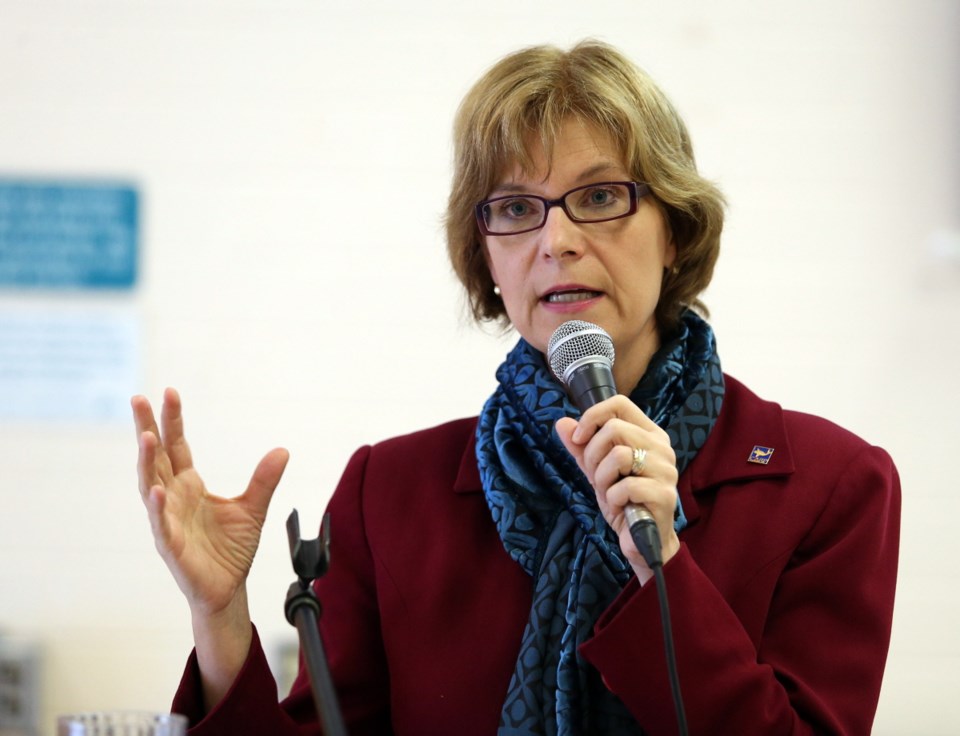B.C. should help house-rich, cash-poor seniors live in their homes longer by offering a government-backed homeowners line of credit, the province’s seniors advocate recommended Thursday.
That’s one of 18 recommendation in Seniors’ Housing in B.C., the fourth report issued by Isobel Mackenzie, since her appointment as seniors advocate in early 2014.
The “Homeowner Expense Deferral Account” would allow low or moderate income seniors to not pay for utilities, home insurance and repairs until their death or the house is sold. That’s when the government could recoup its money — along with a basic low-interest charge.
B.C. already has a similar Property Tax Deferment Program currently used by 36,581 homeowners over age 55, the report notes, charging one per cent interest.
“While travelling throughout the province, the seniors advocate heard many stories from seniors who were deferring their property taxes, but were still struggling to afford the monthly costs of staying in their homes. A hydro bill can seem like a very small expense to many British Columbians, but to some seniors this could be the bill that forces them out of their homes or leaves other needs, such as medications, unmet,” says the report.
“There were also many senior homeowners who were able to meet their monthly, somewhat predictable, costs, but who feared what would happen if they were faced with a major repair such as a roof replacement or the collapse of a dilapidated deck.”
Mackenzie predicts the practical effect of a deferral program could be an extra $6,000 to $11,000 in additional annual income to participants.
After crunching numbers for home values around the province, the report predicts seniors would still have extra equity in their homes after 20 years although it would be much less from someone in Prince George, for instance, compared to a homeowner in the over-heated Metro Vancouver market.
At issue is that 50 per cent of B.C. seniors live on $24,000 per year or less, says Mackenzie. After meeting with thousands of seniors and their families throughout B.C., housing was the top concern everywhere.
“The first thing to note is that, contrary to the notion held by some, the vast majority of seniors do not receive ongoing government-subsidized support for either their housing or daily care,” she notes.
B.C. now has the fastest growth rate for seniors in Canada, expected to account for one-quarter of residents at its peak in 2031. Nearly two-thirds live in Vancouver, Victoria, Abbotsford-Mission and Kelowna.
Mackenzie also said the rules around the rapidly growing assisted-living sector — in which residents with relatively minor health problems live in their own apartments but are offered meals and housekeeping — need revising. That’s because residents are moved into nursing homes — also called residential or long-term care — if their health deteriorates, even temporarily.
Mackenzie found that Alberta and Ontario were more flexible in their regulations. The report suggests accepting a broader range of health problems in assisted living, including palliative care for the dying.
She estimates that up to 15 per cent of people in residential care — with its higher nursing costs — could be living at home with extra help or in assisted living.
Other recommendations include:
• Amend the laws governing renters and condo owners so they won’t be denied permission to add features like grab bars in their suites — or face eviction for doing so.
• Amend the same laws to allow live-in caregivers.
• By 2025, ensure that 95% of all residential care beds in the province are single rooms with their own bathrooms and shower.



